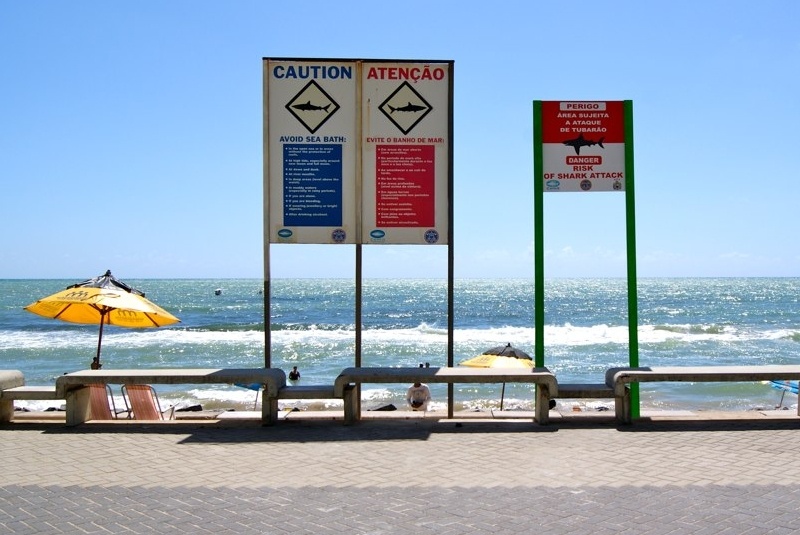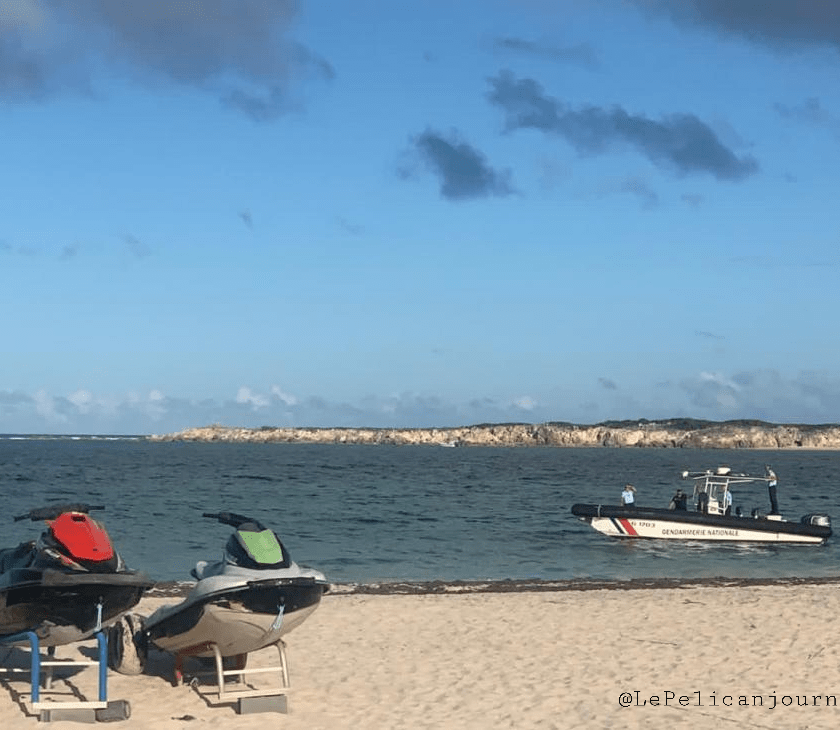Updated Feb 12.
A surfer had a close encounter with a shark off the coast of New South Wales, Australia.
Matt Gallagher was hitting his home surf break at the mouth of the Bellinger River in Urunga Feb. 4.
Around 6:15 a.m. the 50-year-old finished his 10-minute paddled to the middle of the break when a shark attacked.
“I got over there and I hadn’t even had a chance to sit up on my board when the shark hit me from underneath with its jaws open,” Gallagher told The Sydney Morning Herald. “It hit me bottom jaw, full force, and threw me up in the air. It didn’t have the chance to bring the top jaw down for the connecting bite, which was my saving grace.
“I came off my board and realised straight away what had happened. I scrambled for my board, got on, and because I was so far away from the beach I just lay there and thought, ‘I will just have to stand my ground and take a chance’. Then it came at me with its fin up from the horizon, right towards me. The fin went down and I’m like, ‘Where is it? Where’s it going to get me?
“And then it’s come from underneath again on my left side, but not mouth open. Just fully rammed into me. I’m kicking and punching it away from me. It’s disappeared and it’s come right-side and done exactly the same thing; a full charge from underneath.
“I was out of there. I turned, legs up, and sprinted back across the river mouth towards the Urunga-side breakwall. I was paddling flat out but excepting to be chased down, like you’d see in the movies. I was expecting to be mowed down.”
Once he was in waist-deep water, he stood up and looked to see if the shark had followed.
A man who witnessed the event unfold embraced the father of four after he exited the water.
Human contact can be extremely beneficial after such a stressful event. Many shark attack survivors, even those who were uninjured, suffer from Post Traumatic Stress Disorder (PTSD).
PTSD effects everyone differently. Gallagher was contacted by Mick Fanning, who was attacked by a great white shark on live TV. While he was physically uninjured, it did take time to heal from the trauma.
Gallagher was told the shark could have been a juvenile to adult white or bull shark.
“It was a big hit. The bite is across the width of the back of my board. My only saving grace was that I was using a bigger board that morning,” he said.
While he has yet to enter the water he will at some point.
“I’ll get back in — I’m a surfer. The river mouth is where I grew up surfing. It’s my home break. But I’ll just think about my choices. It’s unpredictable. It’s the ocean,” he said.
Beaches were closed for 24 hours.
Those who have been effected by shark attacks can contact Tracking Sharks for private assistance and referral to survivors groups.
There have been a total of 6 shark attack bites (4 with injury, 0 of which are considered provoked*) publicly reported and verified in 2019. One fatal**; two were reported in the U.S (including zero fatal), with 1 occurring in Florida and 0 in Hawaii. Two have been reported in Australia, zero fatal. Three unconfirmed bites, worldwide, not included in the total count.
All locations have been marked on the 2019 Shark Attack Map.
*Provoked defined as spearfishing, feeding sharks, fishing, etc. (listed with green marker).
**Zero possible scavenge
Vessel: 1
Australia Breakdown:
Western Australia: 1 (0 no injury), Fatal: 0, Unconfirmed: 0.
Northern Territory: 0 (0 provoked), Fatal: 0, Unconfirmed 0.
Queensland: 0 (0 provoked), Fatal: 0
Unconfirmed: 2.
New South Wales: 1 (1 no injury), Fatal: 0, Unconfirmed 0.
South Australia: 0, Fatal: 0, Unconfirmed 0.
Victoria: 0 (0 no injury), Fatal: 0, Unconfirmed 0.


